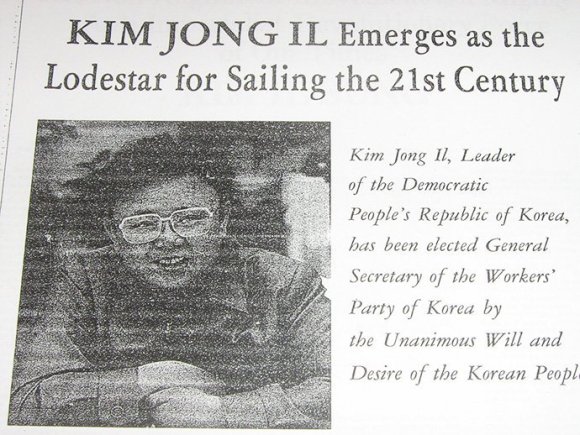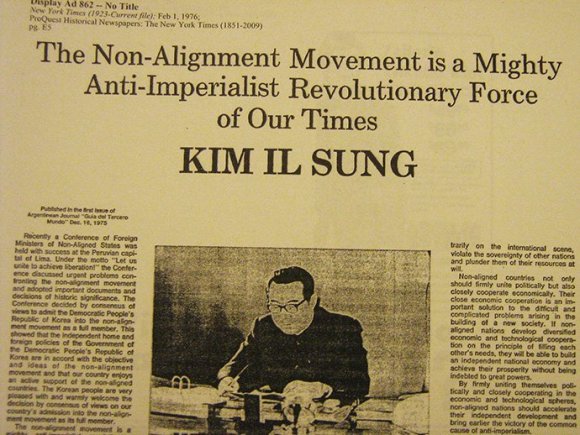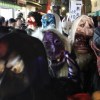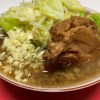
From 1969 to 1997, the North Korean leadership purchased expensive full-page ad space in the most prominent western newspapers, Benjamin R. Young reports for NK News. The ads, which cost anywhere from $3,000 to $10,000, were placed in high-profile publications like The New York Times, The Washington Post, and The Guardian.
Although the exact number of ads Pyongyang placed is unknown, it is estimated that North Korea paid for at least 100 of them.
North Korea began buying the ads in Western newspapers in the late 1960s in an effort to promote Kim Il Sung and Juche, the state-promoted political philosophy in the North that emphasizes self-reliance and a strong military.
Ultimately, and likely to no one’s surprise except for possibly North Korea’s, the ads were a complete waste, and failed to sway public opinion.
As Young notes:
[E]ven supporters of North Korea criticized their international propaganda campaign. Sean Garland of the Irish Republican Army visited North Korea in 1983 and told his Korean comrades that putting full-page ads expressing Kim Il Sung’s ideas into the Irish Times of “was a waste of money because nobody f—ing read them.” In many of the ads, the North Koreans were promoting the published works of Kim Il Sung and Kim Jong Il, but as one Boston Globe reader wrote in a 1969 letter to the editor, “To date, sales have been few. Most people in the Western world have never heard of Kim, or awaited anything from him except trouble.”
In many cases, the failure of the North Korean propaganda came from Pyongyang’s apparent ignorance of the papers’ readerships. One ad, placed in a Middle Eastern newspaper, bore the headline “Kim Il Sung Is A Divine Man.”
The ad was not well received by the newspaper’s Muslim readership.

An ad placed in The New York Times, 1976
The ads were more likely propaganda for the North Korean population than for western readers. North Korean media would report on the ads, claiming that they were articles and editorials written by westerners in praise of the north.
The model was developed to convince the average North Korean that the Kims were treated as major international statesmen — and not as pariahs they actually were.
By the late 1990s, this project of placing propaganda in western media was abandoned.
But even today, North Korea still funds Juche study groups across the world in an attempt to win over sympathizers and raise the status of the North Korean regime.
Featured image: www.nknews.org


 The dirty reason China can’t always tell North Korea what to do
The dirty reason China can’t always tell North Korea what to do America admits it has no idea what Kim Jong-un is doing
America admits it has no idea what Kim Jong-un is doing North Korean defector describes her crazy escape and adjustment to modern life
North Korean defector describes her crazy escape and adjustment to modern life North Korea shows military prowess by bludgeoning a wide range of ceramics【Video】
North Korea shows military prowess by bludgeoning a wide range of ceramics【Video】 Rare photos from inside North Korea’s mysterious buildings
Rare photos from inside North Korea’s mysterious buildings McDonald’s new Happy Meals offer up cute and practical Sanrio lifestyle goods
McDonald’s new Happy Meals offer up cute and practical Sanrio lifestyle goods Studio Ghibli glasses cases let anime characters keep an eye on your spectacles
Studio Ghibli glasses cases let anime characters keep an eye on your spectacles Super Nintendo World expansion gets delayed for several months at Universal Studios Japan
Super Nintendo World expansion gets delayed for several months at Universal Studios Japan All-you-can-drink Starbucks and amazing views part of Tokyo’s new 170 meter-high sky lounge
All-you-can-drink Starbucks and amazing views part of Tokyo’s new 170 meter-high sky lounge Beautiful Sailor Moon manhole cover coasters being given out for free by Tokyo tourist center
Beautiful Sailor Moon manhole cover coasters being given out for free by Tokyo tourist center More foreign tourists than ever before in history visited Japan last month
More foreign tourists than ever before in history visited Japan last month Kyoto’s 100 Demons yokai monster parade returns!
Kyoto’s 100 Demons yokai monster parade returns! Our reporter takes her 71-year-old mother to a visual kei concert for the first time
Our reporter takes her 71-year-old mother to a visual kei concert for the first time Is the new Shinkansen Train Desk ticket worth it?
Is the new Shinkansen Train Desk ticket worth it? We cooked Japan’s 2,000-yen mail-order Ramen of the Year, but was it worth it?【Taste test】
We cooked Japan’s 2,000-yen mail-order Ramen of the Year, but was it worth it?【Taste test】 Disney princesses get official manga makeovers for Manga Princess Cafe opening in Tokyo
Disney princesses get official manga makeovers for Manga Princess Cafe opening in Tokyo Starbucks reopens at Shibuya Scramble Crossing with new look and design concept
Starbucks reopens at Shibuya Scramble Crossing with new look and design concept Beautiful new Final Fantasy T-shirt collection on the way from Uniqlo【Photos】
Beautiful new Final Fantasy T-shirt collection on the way from Uniqlo【Photos】 Foreign English teachers in Japan pick their favorite Japanese-language phrases【Survey】
Foreign English teachers in Japan pick their favorite Japanese-language phrases【Survey】 Japanese convenience store packs a whole bento into an onigiri rice ball
Japanese convenience store packs a whole bento into an onigiri rice ball We try out “Chan Ramen”, an underground type of ramen popular in the ramen community
We try out “Chan Ramen”, an underground type of ramen popular in the ramen community Studio Ghibli releases Kiki’s Delivery Service chocolate cake pouches in Japan
Studio Ghibli releases Kiki’s Delivery Service chocolate cake pouches in Japan Japan’s bone-breaking and record-breaking roller coaster is permanently shutting down
Japan’s bone-breaking and record-breaking roller coaster is permanently shutting down New definition of “Japanese whiskey” goes into effect to prevent fakes from fooling overseas buyers
New definition of “Japanese whiskey” goes into effect to prevent fakes from fooling overseas buyers Our Japanese reporter visits Costco in the U.S., finds super American and very Japanese things
Our Japanese reporter visits Costco in the U.S., finds super American and very Japanese things Studio Ghibli unveils Mother’s Day gift set that captures the love in My Neighbour Totoro
Studio Ghibli unveils Mother’s Day gift set that captures the love in My Neighbour Totoro Foreign passenger shoves conductor on one of the last full runs for Japan’s Thunderbird train
Foreign passenger shoves conductor on one of the last full runs for Japan’s Thunderbird train Domino’s Japan now sells…pizza ears?
Domino’s Japan now sells…pizza ears? New Japanese KitKat flavour stars Sanrio characters, including Hello Kitty
New Japanese KitKat flavour stars Sanrio characters, including Hello Kitty Kyoto creates new for-tourist buses to address overtourism with higher prices, faster rides
Kyoto creates new for-tourist buses to address overtourism with higher prices, faster rides Sales of Japan’s most convenient train ticket/shopping payment cards suspended indefinitely
Sales of Japan’s most convenient train ticket/shopping payment cards suspended indefinitely Sold-out Studio Ghibli desktop humidifiers are back so Totoro can help you through the dry season
Sold-out Studio Ghibli desktop humidifiers are back so Totoro can help you through the dry season Japanese government to make first change to romanization spelling rules since the 1950s
Japanese government to make first change to romanization spelling rules since the 1950s Ghibli founders Toshio Suzuki and Hayao Miyazaki contribute to Japanese whisky Totoro label design
Ghibli founders Toshio Suzuki and Hayao Miyazaki contribute to Japanese whisky Totoro label design Doraemon found buried at sea as scene from 1993 anime becomes real life【Photos】
Doraemon found buried at sea as scene from 1993 anime becomes real life【Photos】 Tokyo’s most famous Starbucks is closed
Tokyo’s most famous Starbucks is closed One Piece characters’ nationalities revealed, but fans have mixed opinions
One Piece characters’ nationalities revealed, but fans have mixed opinions We asked a Uniqlo employee what four things we should buy and their suggestions didn’t disappoint
We asked a Uniqlo employee what four things we should buy and their suggestions didn’t disappoint Princesses, fruits, and blacksmiths: Study reveals the 30 most unusual family names in Japan
Princesses, fruits, and blacksmiths: Study reveals the 30 most unusual family names in Japan 8 ways Kim Jong-Un has blindsided the US
8 ways Kim Jong-Un has blindsided the US Kim Jong-un’s “little red book” of quotes is the worst joke book you can buy for 500 yen
Kim Jong-un’s “little red book” of quotes is the worst joke book you can buy for 500 yen Spectacular video footage from inside North Korea by travel vlogger【Video】
Spectacular video footage from inside North Korea by travel vlogger【Video】 Is North Korea really forcing its young men to get Kim Jong-un’s haircut? Probably not…
Is North Korea really forcing its young men to get Kim Jong-un’s haircut? Probably not… The latest spat between the two Koreas took a really bizarre turn
The latest spat between the two Koreas took a really bizarre turn If you want to explore the Hermit Kingdom of North Korea, there’s an app for that
If you want to explore the Hermit Kingdom of North Korea, there’s an app for that Inside the luxury Chinese hotel where North Korea keeps its army of hackers
Inside the luxury Chinese hotel where North Korea keeps its army of hackers Defector: Gaming culture is alive and well in North Korea, popular titles include GTA V and FIFA
Defector: Gaming culture is alive and well in North Korea, popular titles include GTA V and FIFA 360-video of Pyongyang shows a surprisingly beautiful side of North Korea【Video】
360-video of Pyongyang shows a surprisingly beautiful side of North Korea【Video】 North Korean official put to death after twisting song lyrics during karaoke session
North Korean official put to death after twisting song lyrics during karaoke session North Korea bars foreign tourists to prevent spread of Ebola
North Korea bars foreign tourists to prevent spread of Ebola North Korea calls US the ‘World’s Worst Human Rights Abuser’
North Korea calls US the ‘World’s Worst Human Rights Abuser’ North Korea claims successful hydrogen bomb test, world very skeptical
North Korea claims successful hydrogen bomb test, world very skeptical Uniqlo’s new “communist dictator” jacket has Japanese commenters confused and snickering【Photos】
Uniqlo’s new “communist dictator” jacket has Japanese commenters confused and snickering【Photos】 North Korea has developed nuclear-capable missiles capable of hitting the US
North Korea has developed nuclear-capable missiles capable of hitting the US
Leave a Reply